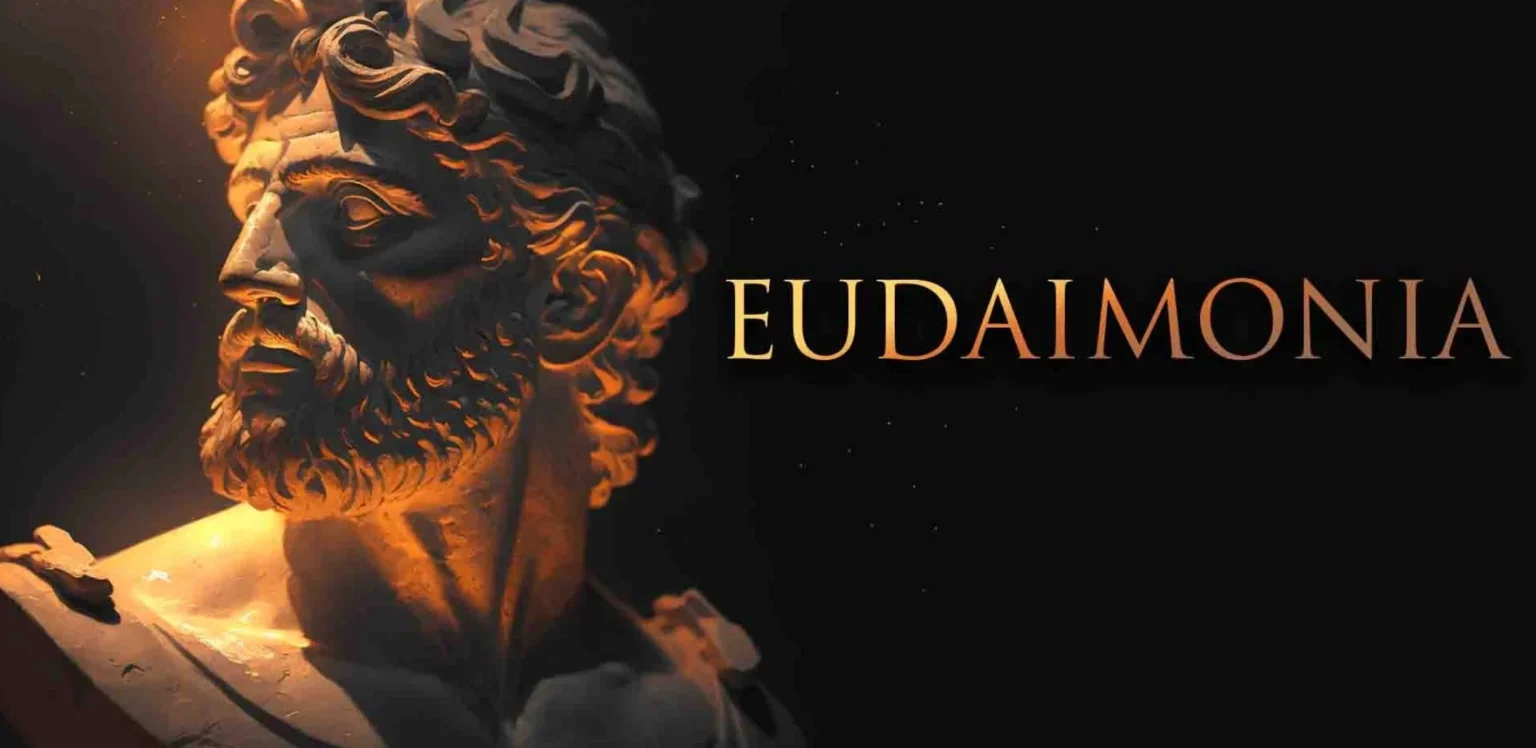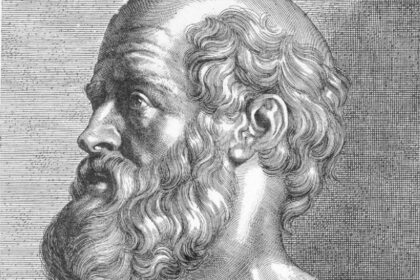Summary
Happiness is a very mundane, fleeting, uncontrollable emotion that leads to pathological and obsessive compulsions to gain or retain it.
#FirstCoffeeThoughts
March 20th is the International Day Of Happiness and happiness means different things to different people because – say it with me -everyone’s reality is different.
When someone uses the word “happy” it is defined differently in their personal dictionary and I think it’s important that everyone understand what happiness means for them and not to compare it to what it may mean for others.
What makes you happy is obviously deeply personal.
It’s no one’s business.
For Stoics like myself, happiness is not “a feeling”, but a mental state of being and an entire attitude towards life.
𝘚𝘵𝘰𝘪𝘤𝘪𝘴𝘮 𝘷𝘪𝘦𝘸𝘴 𝘩𝘢𝘱𝘱𝘪𝘯𝘦𝘴𝘴 𝘯𝘰𝘵 𝘢𝘴 𝘢 𝘧𝘭𝘦𝘦𝘵𝘪𝘯𝘨 𝘦𝘮𝘰𝘵𝘪𝘰𝘯, 𝘣𝘶𝘵 𝘢𝘴 𝘢 𝘴𝘵𝘢𝘵𝘦 𝘰𝘧 𝘪𝘯𝘯𝘦𝘳 𝘱𝘦𝘢𝘤𝘦 𝘢𝘯𝘥 𝘤𝘰𝘯𝘵𝘦𝘯𝘵𝘮𝘦𝘯𝘵 𝘢𝘤𝘩𝘪𝘦𝘷𝘦𝘥 𝘵𝘩𝘳𝘰𝘶𝘨𝘩 𝘭𝘪𝘷𝘪𝘯𝘨 𝘷𝘪𝘳𝘵𝘶𝘰𝘶𝘴𝘭𝘺 𝘢𝘯𝘥 𝘢𝘤𝘤𝘦𝘱𝘵𝘪𝘯𝘨 𝘸𝘩𝘢𝘵 𝘸𝘦 𝘤𝘢𝘯𝘯𝘰𝘵 𝘤𝘰𝘯𝘵𝘳𝘰𝘭, 𝘧𝘰𝘤𝘶𝘴𝘪𝘯𝘨 𝘰𝘯 𝘸𝘩𝘢𝘵 𝘸𝘦 𝘤𝘢𝘯.
For Stoics, the optimal state of well-being is eudaimonia and it comes from focusing on excellence of character rather than other people, possessions, or outside influences.
𝘌𝘶𝘥𝘢𝘪𝘮𝘰𝘯𝘪𝘢, 𝘪𝘯 𝘈𝘳𝘪𝘴𝘵𝘰𝘵𝘦𝘭𝘪𝘢𝘯 𝘦𝘵𝘩𝘪𝘤𝘴, 𝘵𝘩𝘦 𝘤𝘰𝘯𝘥𝘪𝘵𝘪𝘰𝘯 𝘰𝘧 𝘩𝘶𝘮𝘢𝘯 𝘧𝘭𝘰𝘶𝘳𝘪𝘴𝘩𝘪𝘯𝘨 𝘰𝘳 𝘰𝘧 𝘭𝘪𝘷𝘪𝘯𝘨 𝘸𝘦𝘭𝘭. 𝘛𝘩𝘦 𝘤𝘰𝘯𝘷𝘦𝘯𝘵𝘪𝘰𝘯𝘢𝘭 𝘌𝘯𝘨𝘭𝘪𝘴𝘩 𝘵𝘳𝘢𝘯𝘴𝘭𝘢𝘵𝘪𝘰𝘯 𝘰𝘧 𝘵𝘩𝘦 𝘢𝘯𝘤𝘪𝘦𝘯𝘵 𝘎𝘳𝘦𝘦𝘬 𝘵𝘦𝘳𝘮, “𝘩𝘢𝘱𝘱𝘪𝘯𝘦𝘴𝘴,” 𝘪𝘴 𝘶𝘯𝘧𝘰𝘳𝘵𝘶𝘯𝘢𝘵𝘦 𝘣𝘦𝘤𝘢𝘶𝘴𝘦 𝘦𝘶𝘥𝘢𝘪𝘮𝘰𝘯𝘪𝘢, 𝘢𝘴 𝘈𝘳𝘪𝘴𝘵𝘰𝘵𝘭𝘦 𝘢𝘯𝘥 𝘮𝘰𝘴𝘵 𝘰𝘵𝘩𝘦𝘳 𝘢𝘯𝘤𝘪𝘦𝘯𝘵 𝘱𝘩𝘪𝘭𝘰𝘴𝘰𝘱𝘩𝘦𝘳𝘴 𝘶𝘯𝘥𝘦𝘳𝘴𝘵𝘰𝘰𝘥 𝘪𝘵, 𝘥𝘰𝘦𝘴 𝘯𝘰𝘵 𝘤𝘰𝘯𝘴𝘪𝘴𝘵 𝘰𝘧 𝘢 𝘴𝘵𝘢𝘵𝘦 𝘰𝘧 𝘮𝘪𝘯𝘥 𝘰𝘳 𝘢 𝘧𝘦𝘦𝘭𝘪𝘯𝘨 𝘰𝘧 𝘱𝘭𝘦𝘢𝘴𝘶𝘳𝘦 𝘰𝘳 𝘤𝘰𝘯𝘵𝘦𝘯𝘵𝘮𝘦𝘯𝘵, 𝘢𝘴 “𝘩𝘢𝘱𝘱𝘪𝘯𝘦𝘴𝘴” (𝘢𝘴 𝘪𝘵 𝘪𝘴 𝘤𝘰𝘮𝘮𝘰𝘯𝘭𝘺 𝘶𝘴𝘦𝘥) 𝘪𝘮𝘱𝘭𝘪𝘦𝘴. 𝘍𝘰𝘳 𝘈𝘳𝘪𝘴𝘵𝘰𝘵𝘭𝘦, 𝘦𝘶𝘥𝘢𝘪𝘮𝘰𝘯𝘪𝘢 𝘪𝘴 𝘵𝘩𝘦 𝘩𝘪𝘨𝘩𝘦𝘴𝘵 𝘩𝘶𝘮𝘢𝘯 𝘨𝘰𝘰𝘥. 𝘈𝘳𝘪𝘴𝘵𝘰𝘵𝘭𝘦 𝘩𝘦𝘭𝘥 𝘵𝘩𝘢𝘵 𝘦𝘶𝘥𝘢𝘪𝘮𝘰𝘯𝘪𝘢 𝘤𝘰𝘯𝘴𝘪𝘴𝘵𝘴 𝘰𝘧 𝘱𝘩𝘪𝘭𝘰𝘴𝘰𝘱𝘩𝘪𝘤𝘢𝘭 𝘰𝘳 𝘴𝘤𝘪𝘦𝘯𝘵𝘪𝘧𝘪𝘤 𝘤𝘰𝘯𝘵𝘦𝘮𝘱𝘭𝘢𝘵𝘪𝘰𝘯 𝘪𝘯 𝘢𝘤𝘤𝘰𝘳𝘥𝘢𝘯𝘤𝘦 𝘸𝘪𝘵𝘩 𝘵𝘩𝘦 𝘪𝘯𝘵𝘦𝘭𝘭𝘦𝘤𝘵𝘶𝘢𝘭 𝘷𝘪𝘳𝘵𝘶𝘦𝘴 𝘰𝘧 (𝘵𝘩𝘦𝘰𝘳𝘦𝘵𝘪𝘤𝘢𝘭) 𝘸𝘪𝘴𝘥𝘰𝘮 𝘢𝘯𝘥 𝘶𝘯𝘥𝘦𝘳𝘴𝘵𝘢𝘯𝘥𝘪𝘯𝘨, 𝘣𝘶𝘵 𝘩𝘦 𝘢𝘭𝘴𝘰 𝘢𝘭𝘭𝘰𝘸𝘦𝘥 𝘵𝘩𝘢𝘵 𝘢𝘤𝘵𝘪𝘰𝘯 𝘪𝘯 𝘵𝘩𝘦 𝘱𝘰𝘭𝘪𝘵𝘪𝘤𝘢𝘭 𝘴𝘱𝘩𝘦𝘳𝘦, 𝘪𝘯 𝘢𝘤𝘤𝘰𝘳𝘥𝘢𝘯𝘤𝘦 𝘸𝘪𝘵𝘩 (𝘱𝘳𝘢𝘤𝘵𝘪𝘤𝘢𝘭) 𝘸𝘪𝘴𝘥𝘰𝘮 𝘢𝘯𝘥 𝘵𝘩𝘦 𝘮𝘰𝘳𝘢𝘭 𝘷𝘪𝘳𝘵𝘶𝘦𝘴, 𝘴𝘶𝘤𝘩 𝘢𝘴 𝘫𝘶𝘴𝘵𝘪𝘤𝘦 𝘢𝘯𝘥 𝘵𝘦𝘮𝘱𝘦𝘳𝘢𝘯𝘤𝘦, 𝘪𝘴 𝘦𝘶𝘥𝘢𝘪𝘮𝘰𝘯 (“𝘩𝘢𝘱𝘱𝘺”) 𝘪𝘯 𝘢 “𝘴𝘦𝘤𝘰𝘯𝘥𝘢𝘳𝘺 𝘥𝘦𝘨𝘳𝘦𝘦”.
Contrary to ignorant beliefs, stoicism is not about the diminishing of, or the suppression of, emotions, but about purification of appropriate and regulated emotions.
It is about THINKING first and FEELING second. It is about regulation of emotions so that the mind, body, and spirit do not become overwhelmed, run down, or controlled by “passions” i.e. pathological desires.
It prioritizes 𝘪𝘯𝘵𝘦𝘭𝘭𝘦𝘤𝘵𝘶𝘢𝘭 𝘷𝘪𝘳𝘵𝘶𝘦𝘴 𝘰𝘧 𝘸𝘪𝘴𝘥𝘰𝘮 𝘢𝘯𝘥 𝘶𝘯𝘥𝘦𝘳𝘴𝘵𝘢𝘯𝘥𝘪𝘯𝘨 over madness and passions that destroy humanity.
𝘛𝘩𝘦 𝘶𝘭𝘵𝘪𝘮𝘢𝘵𝘦 𝘢𝘪𝘮 𝘰𝘧 𝘚𝘵𝘰𝘪𝘤𝘪𝘴𝘮 𝘪𝘴 𝘤𝘶𝘭𝘵𝘪𝘷𝘢𝘵𝘪𝘯𝘨 𝘦𝘹𝘤𝘦𝘭𝘭𝘦𝘯𝘤𝘦 𝘰𝘧 𝘤𝘩𝘢𝘳𝘢𝘤𝘵𝘦𝘳 𝘢𝘯𝘥 𝘷𝘪𝘳𝘵𝘶𝘦 (𝘢𝘳ê𝘵𝘦) 𝘵𝘩𝘳𝘰𝘶𝘨𝘩 𝘭𝘪𝘷𝘪𝘯𝘨 𝘳𝘢𝘵𝘪𝘰𝘯𝘢𝘭𝘭𝘺 𝘢𝘯𝘥 𝘴𝘰𝘤𝘪𝘢𝘭𝘭𝘺 𝘳𝘦𝘴𝘱𝘰𝘯𝘴𝘪𝘣𝘭𝘺.
𝘛𝘩𝘦𝘳𝘦 𝘢𝘳𝘦 𝘧𝘰𝘶𝘳 𝘮𝘢𝘪𝘯 𝘷𝘪𝘳𝘵𝘶𝘦𝘴:
- 𝘱𝘳𝘢𝘤𝘵𝘪𝘤𝘢𝘭 𝘸𝘪𝘴𝘥𝘰𝘮 (𝘴𝘦𝘭𝘧-𝘤𝘰𝘯𝘵𝘳𝘰𝘭, 𝘮𝘰𝘥𝘦𝘳𝘢𝘵𝘪𝘰𝘯)
- 𝘫𝘶𝘴𝘵𝘪𝘤𝘦 (𝘧𝘢𝘪𝘳𝘯𝘦𝘴𝘴, 𝘤𝘪𝘵𝘪𝘻𝘦𝘯𝘴𝘩𝘪𝘱)
- 𝘤𝘰𝘶𝘳𝘢𝘨𝘦 (𝘦𝘯𝘥𝘶𝘳𝘢𝘯𝘤𝘦, 𝘳𝘦𝘴𝘪𝘭𝘪𝘦𝘯𝘤𝘦)
- 𝘵𝘦𝘮𝘱𝘦𝘳𝘢𝘯𝘤𝘦 (𝘩𝘶𝘮𝘪𝘭𝘪𝘵𝘺, 𝘮𝘰𝘥𝘦𝘴𝘵𝘺)
𝘛𝘩𝘦𝘺 𝘣𝘦𝘭𝘪𝘦𝘷𝘦𝘥 𝘵𝘩𝘦 𝘪𝘥𝘦𝘢𝘭 𝘱𝘦𝘳𝘴𝘰𝘯 𝘦𝘹𝘩𝘪𝘣𝘪𝘵𝘴 𝘱𝘳𝘢𝘤𝘵𝘪𝘤𝘢𝘭 𝘸𝘪𝘴𝘥𝘰𝘮 𝘢𝘣𝘰𝘶𝘵 𝘸𝘩𝘢𝘵 𝘣𝘳𝘪𝘯𝘨𝘴 𝘦𝘶𝘥𝘢𝘪𝘮𝘰𝘯𝘪𝘢 𝘸𝘩𝘪𝘭𝘦 𝘤𝘰𝘯𝘵𝘳𝘪𝘣𝘶𝘵𝘪𝘯𝘨 𝘵𝘰 𝘵𝘩𝘦 𝘨𝘳𝘦𝘢𝘵𝘦𝘳 𝘨𝘰𝘰𝘥 𝘰𝘧 𝘩𝘶𝘮𝘢𝘯𝘪𝘵𝘺.
I have followed stoic philosophy since I was pre-teen and it become the focus of my life once I graduated high school and began studying and focusing philosophy and psychology in college.
For me happiness isn’t real. To me happiness is an addiction, a drug, a “passion” and not a healthy state … more like a momentary mania or a state of emotional dysregulation or madness like anger. Happiness is a very mundane, fleeting, uncontrollable emotion that leads to pathological (being such to a degree that is extreme, excessive, or markedly abnormal) and obsessive compulsions to gain or retain it.
For me eudaimonia is the ideal state and far exceeds “happiness”.
DO YOU.
What happiness is for you is personal and has nothing to do with anyone else. What other people do to find and maintain happiness is specific to them and has nothing to do with your needs, your desires, and your view of happiness for yourself.
We all have our own realities and while sometimes the edges of those realities cross with other people’s, we are still separate individuals.
Find happiness or live in a state of eudaimonia.
Do whatever works FOR YOU and helps you THRIVE.



















